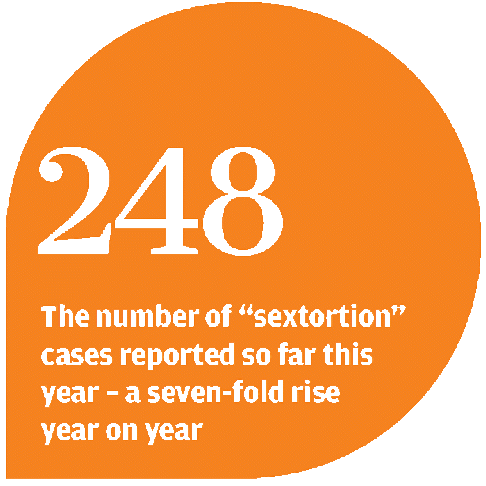
'Sextortion' cases increase as Asian men targeted in steamy internet stings
Young men targeted in Southeast Asia-based blackmail epidemic involving webcam videos

Cases of "sextortion" increased seven-fold in Hong Kong in the first eight months of the year, but not a single arrest has been made, prompting police to contact Interpol to try to bring the overseas criminals responsible to justice.

"Once it's done, the victims soon receive a link to a video of them without clothes or performing indecent acts," said Chief Inspector Louis Kwan Chung-yin from the technology crime division
A total of 248 cases were reported from January to August, a seven-fold surge from the same period last year. The victims - 245 men aged between 14 and 58, and four women aged 28 to 53 - reported losses of up to HK$46,680 and totalling about HK$160,000. This was 12 times the total reported over the same period last year.
The young Asian women involved were generally based in two or three Southeast Asian countries, which police did not specify. All chats were in English.
Police attributed the surge in cases to a low awareness of the scam, and said it was likely that there were more female victims than have been reported because many were too embarrassed to seek police help.
Only three in 10 of the victims paid up, and all were asked to transfer money to accounts in Southeast Asian countries.
Paying the scammers would not solve the problem, as victims were often pressured into making further bank transfers or risk having the video clip posted online, Kwan said.
He added that the cases were hard to investigate because the criminals were overseas.
In addition to seeking co-operation from Interpol, collaboration with overseas law-enforcement agencies was also "in the making", Kwan said, without giving details.